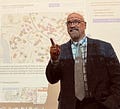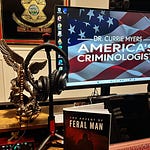NYPD Cuts will Turn into a Real-Life Escape from New York
Remember the movie, "Escape from New York?" The movie is set in a dystopian future where Manhattan has been turned into a maximum-security prison. The film is set in a crime-ridden, near-future America where Manhattan has been converted into a giant maximum-security prison. The entire island is surrounded by a high wall and is designated as a place for the country's worst criminals and there are no police to patrol the streets. Occupants of New York, fend for themselves for everything.
Now in New York, Mayor Eric Adams made good on his promise to slash the city budget when on Thursday he announced sweeping measures that will free police hiring, close libraries on Sundays, and take other drastic measures all to pay for the massive illegal immigrant influx caused by Joe Biden's border disaster.
"No city should be left to handle a national humanitarian crisis largely on its own, and without the significant and timely support we need from Washington, D.C., today’s budget will be only the beginning," Adams said as he announced the cuts to the $110 billion budget, The New York Times reported.
The budget cuts will slash the police department to below 30,000. The NYPD covers New York's five boroughs and nearly 9 million people. School safety agents will also be cut, and Adams said parents should step up and volunteer.
"This is truly a disaster for every New Yorker who cares about safe streets," police union president Patrick Hendry said. "Cops are already stretched to our breaking point, and these cuts will return us to staffing levels we haven’t seen since the crime epidemic of the ’80s and ’90s. We cannot go back there."
Cities across the country that have previously mandated poorly thought-out criminal justice public policy, such as police defund movements are now faced with severe budget crunches. This policy decision has resulted in triggering an increase in crime and urban flight from former taxpayers who no longer can live in the cities due to public safety concerns.
As revenues deplete from the city coffers then elected officials are more inclined to increase city and state taxes, fees, and regulations. So then in addition to the high crime, the tax commitment on residents become so burdensome that people and corporations will also leave.
When sales taxes increase citizens will leave. People living in high tax cities feel their communities have been overrun by crime, violence, open usage of drugs and an aggressive homeless population. “In 2021 the 10 states that gained the most residents from domestic in-migration had an average total state and local tax burden as a percentage of income of 7.7 percent,” Grover Norquist, president of Americans for Tax Reform, wrote for The Wall Street Journal this week, “notably lower than the 9.9 percent of the 10 states that lost the most residents.”
When crime is increasing, and police are decreasing the demand for homes in those areas drops and so do home prices. A lack of public safety in one area will shift the demand to another market. As a result, when property values decline, revenue to cities decline, which further impacts the government’s services. A 2010 study published in Regional Science and Urban Economics, Panel Data Estimates of the Effects of Different Types of Crime on Housing Prices,” found that in particular robbery and aggravated assault crimes exert a meaningful influence upon neighborhood housing values.
Historically studies have found a relationship between police organizational style and police effectiveness. A study of the effects of visibility of patrols showed more effective deterrents, while high/low visibility patrols resulted in more apprehensions. (“Relationship Between Police Presence and Crime Deterrence”) Several studies have found that the use of aggressive patrol techniques such as vehicle stops, and stakeouts produce high arrest rates and low crime rates. In other studies, factors which have been found to contribute to enhanced police effectiveness include close cooperation with the community, the use of team policing, and increased nighttime (as opposed to daytime) patrols.
Additionally, rogue prosecutors that have not enforced laws legally passed and signed into law and have adopted inappropriate bail limits has also caused a spike in crime. Recidivism rates for violent offenders are on the average of the mid 60% range. According to the United States Sentencing Commission study, violent offenders recidivated at a higher rate than non-violent offenders. Over 60 percent (63.8%) of violent offenders recidivated by being rearrested for a new crime or for a violation of supervision conditions. This compares to less than 40 percent (39.8%) of non-violent offenders who were rearrested during the follow-up period.
One can determine that if you have a defund movement, prosecutorial misconduct, and reductions in budgets and staffing of police you have four propositions to consider:
Proposition 1: Crime is an outcome of a perception–choice process. If the public perception is that criminal activity is left ignored or laws not enforced, then crime is more likely to occur.
Proposition 2: This perception–choice process is initiated and guided by relevant aspects of the person–environment interaction. If the environment exists that has no ethical boundaries regarding the activity of crime and there are no consequences from the action of a crime, then crime is more likely to occur.
Proposition 3: Processes of social and self-selection place kinds of people (those with certain personal characteristics) in kinds of settings (those with certain environmental and circumstantial features), creating kinds of interactions. When society allows and rewards Feral Humans to co-exist with structured humans and there are no repercussions for Human Feral behavior then crime is more likely to occur.
Proposition 4: What kinds of people and what kinds of settings are present in an area is the result of historical processes of personal and social emergence. When an area no longer has structure, laws, and civil authority that promotes and defends safety and security, then crime is more likely to occur.
The Impact of Crime on the Human Psyche
The impact of crime on the human psyche can be immense, both in reality and perception. Maslow found that safety and security was a foundational need in humans. Being able to feel safe and secure is a primal need that we all face, and that need must be met before we can move on to higher level needs. (“Maslow’s Hierarchy of Needs – Safety and Security - Smart Talk”) The basis of Maslow’s theory is that human needs were first physiological, meaning that food, water, and breathing was human first basic requirement. But safety and security were a close second. The three areas of safety needs in humans, according to Maslow:
1. Physical Safety - As the title suggests, if you are not physically safe, that means that your life is in peril which will detract from your quality of life, your ability to think, and increase your stress hormone levels.
2. Financial Security - Being financially secure means that you are independent and can make decisions about your life based on ways to improve it and society rather than based on survival.
3. Emotional Security - Being safe emotionally means that you have people around you that you can trust, it means being able to emotionally connect with your fellow human, and it means feeling safe enough emotionally to be able to speak up about your needs should that need arise.
We need to be able to meet all three needs to be able to move onto the next tier in Maslow's Hierarchy of Needs. All three safety and security needs are often not being met in the United States at present. Our physical security is at peril through higher crime, actual and perceived. An economic downturn, energy dependence, and the excessive cost of inflation are pressing our financial security. Finally, our emotional security is being torn apart from social distancing and cognitive dissonance that is occurring from our previous community relations of the past. We interact less as individuals and have more interaction through technology which does not satisfy the entire sensory fulfillment of humans.
All these pressures are waying heavy on the human soul presently and the unintended consequences and in some cases the intended consequences of our actions have resulted in poor public policy decisions. Not just economic public policy, but also criminal justice public policy. Decisions which can change the political narrative in elections.
This is Dr Currie Myers, America’s Criminologist! Stay safe and have a great weekend. Feel free to visit my work on Substack and drcurriemyers.substack.com.














Dr Currie Myers Podcast for November 17, 2023